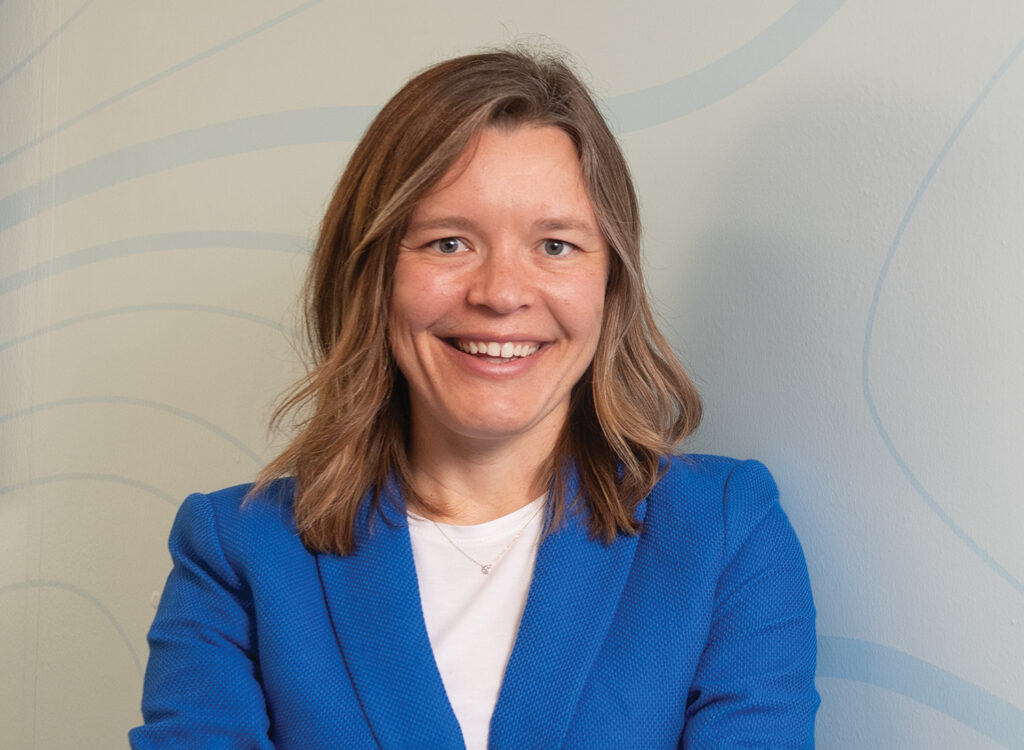Closer Look: Alex Taylor
Managing director, Iowa Startup Accelerator

KATE HAYDEN Oct 15, 2020 | 4:34 pm
5 min read time
1,253 wordsBusiness Record Insider, Innovation and Entrepreneurship
In his new role at the Iowa Startup Accelerator, managing director Alex Taylor has a wealth of experiences to draw on as he prepares to guide Iowa startups building their business.
“It seems that all of my background and experience in startups, technology, education and recruitment have sort of folded in on one another into this role,” Taylor said. “It’s an exciting and fun match.”
Before joining the ISA, Taylor’s career took him through multiple fields, including managing public relations and internal communications at Parsons Technology and Dell; business development and consultation services for clients like the city of Cedar Rapids in flood disaster recovery efforts; leading the University of Iowa Executive Education and Executive MBA Programs as associate director; and most recently in research data collection for the Coralville medical startup Digital Diagnostics (previously known as IDx).
Taylor is also a seasoned entrepreneur, beginning with distance learning/videoconferencing startup Liveware5 in 1997, which Taylor describes as a precursor to web streaming. In 2010 he became co-owner with his wife, Laura, of Woofables Gourmet Dog Biscuit Bakery in Coralville. Today, Woofables is a national manufacturing and distribution company retailing across the U.S.
Taylor first connected with Eric Engelmann, executive director of NewBoCo in Cedar Rapids, in early January 2020 over the upcoming role at the Iowa Startup Accelerator. The ISA is managed by NewBoCo but had never had a dedicated staff member to run the program full time. After some delay during the start of the COVID-19 pandemic, Taylor had his first day of work with the ISA in August.
What interested you in joining the Iowa StartupAccelerator?
I’ve always been involved in startup organizations. It seems like I fall naturally into startup or high-tech, fast-moving organizations. That really attracted me. I enjoy working with and educating people, and given my eclectic background in business, it seemed to make sense that I could help convey some of the things I’ve learned working in small and large startup organizations, and that would be valuable for those starting up their own businesses.
I’ve skinned my knees plenty of times failing fast. … It’s an important message for startups to learn early, because that will help them accelerate their growth.
What’s the best piece of advice or feedback you’ve received over your career?
The best piece of advice I’ve received over my career in the entrepreneurial space is don’t be afraid to fail, and fail fast. People who are successful in the entrepreneurial environment, in startup businesses – it’s very unusual to hear somebody say they never had a failure. Most startup businesses and their owners or the CEOs will tell you they failed many times before they found success there. It’s well documented.
As far as feedback goes, I’m a very creative, energetic person who has a passion for helping others. Since I’ve taken this role, I received a lot of feedback on LinkedIn from people I’ve worked with all over the United States who’d say, “That sounds like a really ideal match for you.”
What goals do you have for your first year with the accelerator?
My initial goals are to provide additional structure to an already successful organization. The accelerator has been around for five years, and I’m the first employee they’ve had that is 100% dedicated to growing and building the accelerator.
Ideally, we’d like to put it into three phases. One is much more of a collaborative phase, working with organizations across the state on designing what would be a pre-accelerator program for the early startup businesses and organizations who have an idea on the back of a piece of paper. How do you take that idea from a piece of paper to something that would qualify for early seed investment, which would be the accelerator. … The third phase is what sort of programming we are going to offer these startups after they’ve completed the [accelerator].
My goals are to formalize that three-step process, and put some structure in it so that it’s a very clear path for somebody who has an idea. … We’re still very much in touch with the founders of the companies that have gone through [in the past], but not in a formal capacity, and I want to try to formalize that so that we can nurture them along faster and more successfully than we have historically.
Who are the startups that come to ISA?
They are Iowa-based companies. Part of our mission is to help augment the employment base and the economies of our communities within the state of Iowa, and there’s some incentives for us to do that. The target companies are typically those who have demonstrated some business success. They already have a good idea of who their market is, maybe have a couple of sales, but are really in need of some good mentoring and coaching and maybe some seed capital resources to help them grow. Those are our ideal startup businesses.
The next cohort of startup business [will] begin in the spring. … I’m working really diligently to establish a pilot program for the pre-accelerator and a pilot program for the post-accelerator [phases].
How can accelerators best support startups at this time?
I see my glass as half full, and as I talk to colleagues around the state who are involved in accelerators … we’re generally all pretty bullish. There are people who are unemployed, there are people who are working from their homes and are frustrated by the broader economic downturns, and necessity is the mother of invention. We believe there are people that are penciling in ideas right now, and I believe that the best way we can help them is to encourage them to come forward with their ideas and not be scared of bringing it to the attention of people who are playing the space. We very much want to help them grow their ideas.
You mentioned you and your wife are co-owners of a small business right now. How does that experience give you perspective for startups you’ll be working with?
Empathy – I can feel their pain. We’ve had to make some scaling decisions as we’ve grown Woofables. We started with just my wife, myself, my kids and maybe one employee. We reach a seasonal high of 3,200 employees, we’re moving into two shifts. … We have over 800-something vendors around the United States reselling our biscuits, from the small mom-and-pop pet shops to the large grocery chains such as Hy-Vee. Scaling all of that has involved some pain and suffering, some long hours, and some financial mistakes from time to time, but we kept forging ahead. That experience, combined with my experiences with other organizations, helps me to be empathetic to anybody starting a business.
What have you been reading/watching/listening to lately?
Before I jumped into this role of managing director, I read a book called “The Startup Community Way” by Brad Feld and Ian Hathaway. I really enjoyed reading this book because it outlines the philosophies of what it takes to be a startup and successful business in today’s environment. Woofables has been around for 10 years – I shared this book with my wife and had her read it because these ideas are not just temporary, that’s not something that just grows old. In order to succeed in this fast-paced business environment, I think that existing businesses need to be intrapreneurial, and they need to be constantly reinventing themselves and changing and adjusting and pivoting for today’s new consumer.










